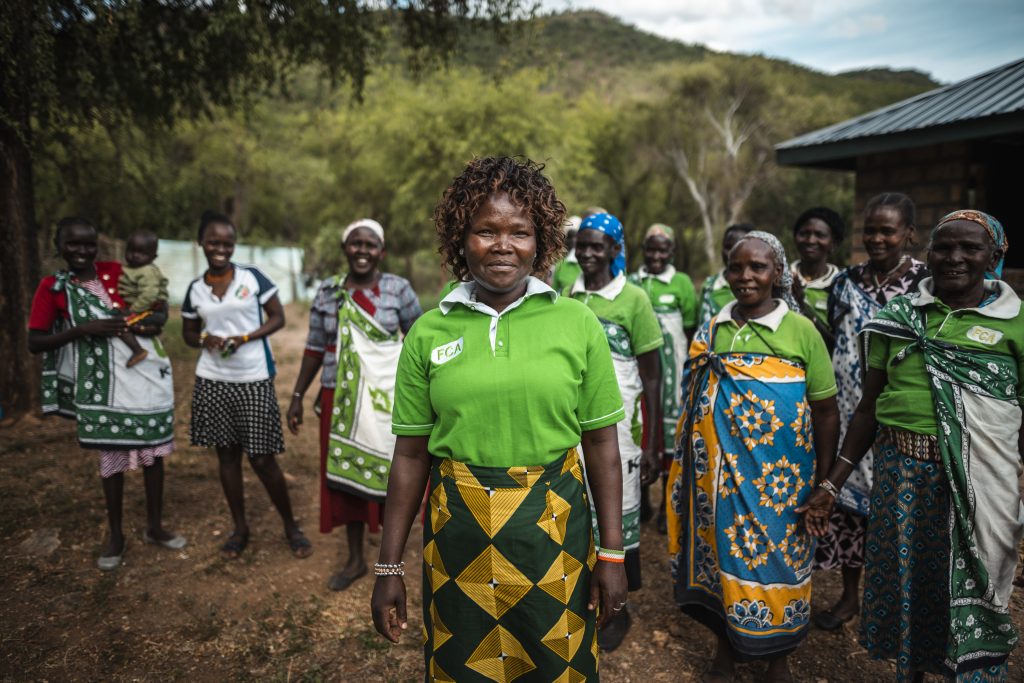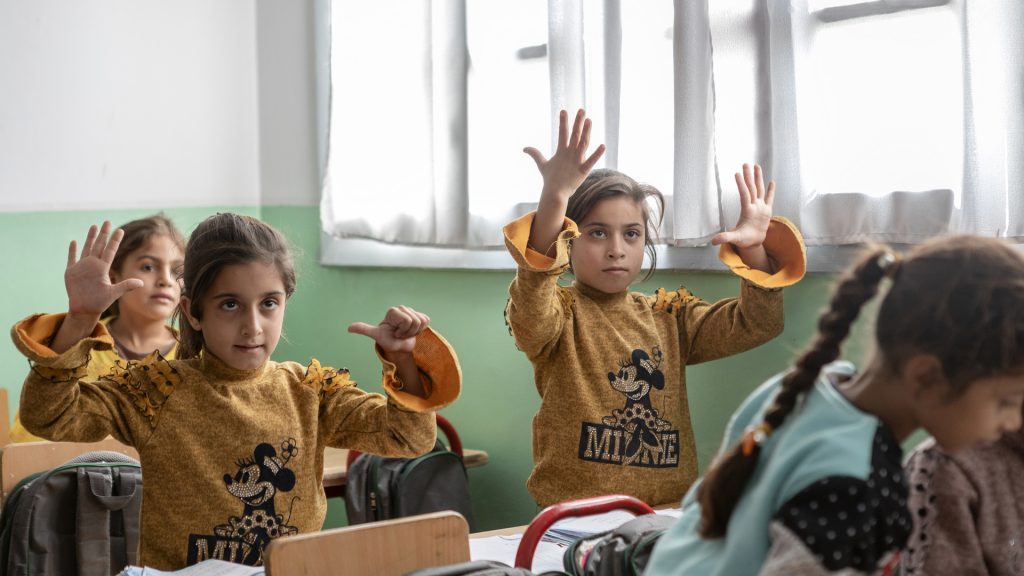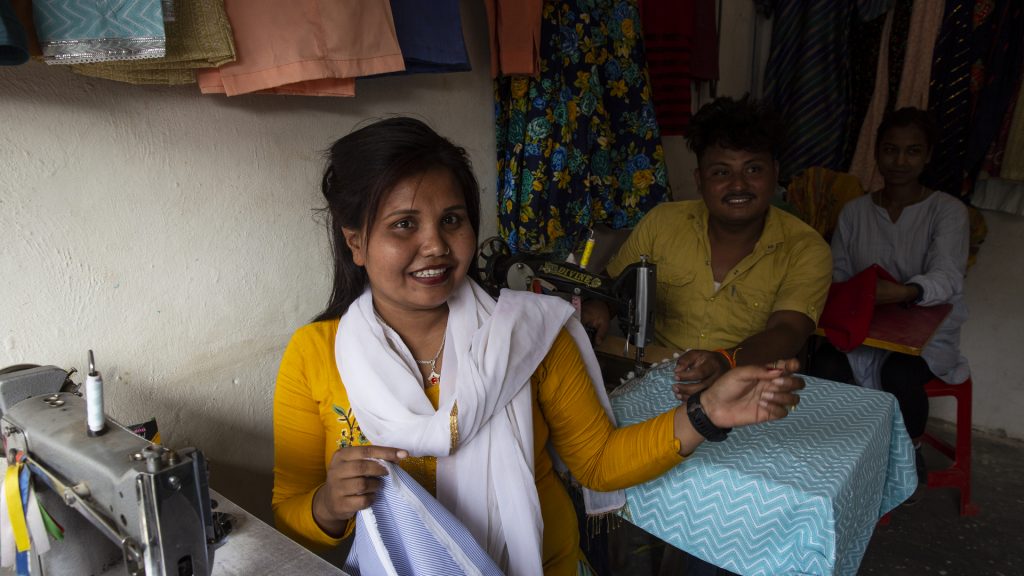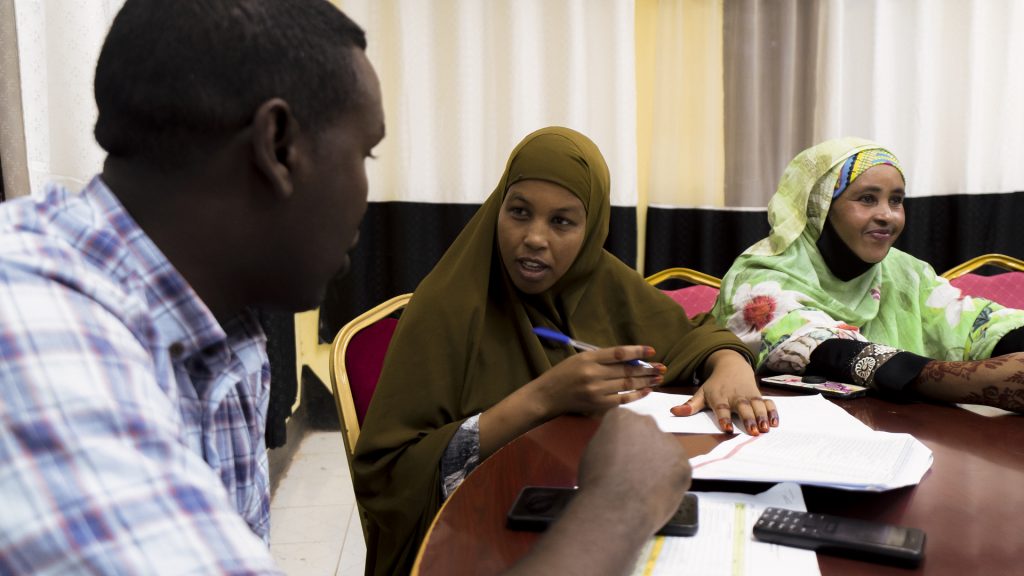It’s particularly important to support women in developing countries – but why?
There are still too many women and girls in the world who don’t have the chance to learn to read or count. Without their contribution, half of the population’s potential remains unused.
“CHANGE STARTS with your family. Then it can spread to your village and the whole community,” says Irene Kiplagat Koskei Rugut, 48.
Chief Irene, as she is known in her home village of Barpelo in Baringo, northwest Kenya, has been at the forefront of her community’s fight against female genital mutilation (FGM). It has not been a simple or easy road, but Irene is passionate about her cause.
“It happened to me when I was 15 years old. I know what it’s like to be mutilated and how it affects your life and being a woman,” she says.
Irene did not want the same fate for her daughters or anyone else’s children. It’s not just about health or the effects of mutilation on a woman’s body. In many cases, FGM means the end of a girl’s schooling. Afterward, many girls are not allowed to finish their schooling, which affects their lifelong livelihood prospects.

Educated girls grow up to be women who can learn a trade, rather than having to live on agriculture alone. Now that the village of Barpelo is also severely affected by climate change, a profession other than traditional livestock farming would provide security. When a woman has a profession, she is not dependent on her husband’s or family’s money.
After initial challenges, Irene has won over most of the people of Barpelo. There is hardly any mutilation of girls here anymore. Irene is happy. Her own daughter has a university degree and already has a good job in the local government.
Discrimination against women starts in childhood
Women make up roughly half of the world’s population. Yet women face many forms of gender discrimination and physical threats; at work, in their communities and even at home. Women can rightly be said to be at a disadvantage compared to men in many parts of the world.
In many cases, exclusion and discrimination against women starts to build up in childhood. For example, in some cultures, the education of girl children is seen as a waste of time and money. If parents have to choose whether to send a boy or a girl to school, sometimes culture and antiquated beliefs lead them to prefer the boy. This idea is built on traditions where only men have full rights to decide their own affairs – and often also those of women and girls.
However, putting girls who grow up to be women in an unequal and inferior position ignores the fact that whole families and communities are losing half of their full potential. Development, prosperity and peace cannot be achieved if half of people are excluded from society and its decision-making processes.
The idea of supporting women in particular through development cooperation became stronger in the 1980s. The special status and needs of women and girls is still at the heart of development cooperation work in FCA’s country of origin – Finland. And no wonder, equality has a long tradition in Finnish society. But this has not always been the case.
Equality is the result of progress, it does not come automatically or for free. It is a social innovation, which has brought renewal and prosperity to society through the contributions of both women and men. Finland advocates a global commitment to equality. It wants to redefine the concept and put equality back in the spotlight.

Girls’ education is changing the world
There are still too many women in the world who never had the chance to learn to read or count. Without basic skills, people can miss out on important information about their rights and opportunities to participate in their communities and decision-making. They may be exploited financially and physically. Or they may not know how to seek help for health, financial or social-related problems even if they are entitled to help.
Above all, the lack of access to quality education shackles people to poverty. Millions of people in the world, especially in developing countries, depend on livestock or other forms of agriculture. Their already meagre livelihoods can be severely disrupted by sudden shocks, such as global pandemics like Covid-19 or weather events caused by climate change.
That is why it is important that girls also have access to schooling. With an education, girls become women who know their rights. This will enable them to use the knowledge and skills they have learned in a variety of ways to secure their own and their families’ livelihoods.
Education also protects girls from early marriage and pregnancy. Interrupted schooling, on the other hand, increases the risk of teenage pregnancies and child marriages. This is why FCA supports girls’ education and their return to school, especially in disaster and crisis situations.
Educated women are also more likely to put their own children through school. They keenly understand the importance of those crucial early years in school for their future well-being. So in a way, education is multiplied, especially by educating girls and women.

Peace needs women
The war in Ukraine has shown brutally how rape and sexual violence – mostly, but not exclusively towards women – are very much a part of warfare. But women are not just victims of war. In the context of conflict, women can play an important and leading role in peace processes. Women can work for peace not only at grassroots level, but also in higher levels of government.
In March 2023, the Finnish Ministry of Foreign Affairs published its new Women, Peace and Security Action Plan, which FCA is also committed to implementing. The main objectives of the Action Plan include strengthening women’s meaningful participation and gender perspective in conflict prevention and peace negotiations, the security sector, crisis management and preparedness.
FCA has long supported women’s participation in local governance and peace processes. One example is in Somalia, where decision-making is largely dominated by male-dominated clans. Traditionally, women, youth and marginalised groups are excluded from decision-making processes. Our advocacy work since 2016 has resulted in 16 women being elected as members of five new regional councils. FCA has also provided leadership training to over 700 women leaders.

At the grassroots level, women, especially mothers, have played an important role in peace work. In Kenya’s Kerio Valley, where FCA works for peace, when a woman becomes a mother, she receives a wide leather belt. The gift is often decorated with shells by her mother or another woman in her community. The purpose of the belt is to aid recovery from childbirth, but it also has symbolic, trans-tribal significance. In times of violence, women come together to discuss issues. The old custom is for mothers to place their belts on the ground in front of them. The symbolic line is not allowed to be crossed, but is there to protect the peace of the parties to the conflict to negotiate.
Finland is a women’s rights pioneer
It is often said that Finland was the first country in the world to grant women full political rights. That was in 1906. However, decades of work for equality preceded women’s suffrage and political participation. As early as the 1850s, women activists were speaking out for girls’ education.
In many countries around the world, women continue to struggle for political participation as well as for everyday rights such as the right to own land or inherit from their relatives. In Finland, women and men were granted equal inheritance rights in 1878. The first Finnish co-educational school brought boys and girls together in 1886. In 1870, Marie Tschetschulin became the first Finnish and Scandinavian woman to enrol as a matriculate. Until 1888, however, women were still required to obtain a separate permit to sit the matriculation examination. It was not until 1901 that women were granted the right to study at university.
As the 19th century Kuopio woman lawyer and writer Minna Canth said, “The question of women is not only a woman question, but a question of humanity.” It is easy to agree. Gender equality is first and foremost about human rights, and human rights belong to everyone.
Sources:
Ministry of Foreign Affairs of Finland – This is Finland
Government of Finland official website
Text: Elisa Rimaila
Illustration: Julia Tavast